Magnesium and digestive enzymes play important roles in our body's health, working together to help digestion and overall wellness. This connection affects many body processes, from absorbing nutrients to producing energy. Let's learn more about how these two important things work together to keep our gut happy, our metabolism working well, and our overall health good.
Key Takeaways
- Magnesium helps over 300 enzyme reactions, including those with digestive enzymes
- Digestive enzymes break down food and help absorb nutrients
- Having enough magnesium makes digestive enzymes work better
- Not having enough magnesium can cause poor digestion and nutrient absorption
- Eating foods with magnesium helps digestion work well
- Supplements can help if you don't get enough magnesium from food
- Good gut health involves more than just magnesium and enzymes, like probiotics and lifestyle choices
What Are Digestive Enzymes?
Digestive enzymes are special proteins that help break down the food we eat into smaller pieces our body can use more easily. These enzymes make chemical reactions in our digestive system happen much faster. Without them, our bodies would have a hard time getting important nutrients from our food. Probiotics often work with these enzymes to keep our gut healthy, helping digestion and nutrient absorption.
There are different types of digestive enzymes, each for breaking down specific types of food:
- Amylases: These break down carbohydrates into simpler sugars. They start working in your mouth and keep going in your small intestine.
- Proteases: These break down proteins into smaller pieces and amino acids. This starts in your stomach and continues in your small intestine.
- Lipases: These break down fats in your small intestine. Bile from your liver helps with this process.
There are also other enzymes like lactase (for milk sugar), cellulase (for plant fiber), and nucleases (for genetic material). All these enzymes work together to break down your food into nutrients your body can use for energy, growth, and repair.
The Magic of Magnesium
Magnesium is a mineral that's really important for our body. It's involved in over 300 different processes in our cells, making it one of the most useful and necessary minerals for human health. Minerals like magnesium are basic building blocks that keep our body running smoothly, helping many enzyme reactions and playing key roles in making energy in our cells.
Here's what magnesium does in our body:
- Energy Production: Magnesium helps create and use ATP, the main energy source for cells. It helps turn food into energy our body can use.
- Muscle and Nerve Function: It helps control muscle movements and nerve signals. Having enough magnesium can help prevent muscle cramps and keep nerves working properly.
- Bone Health: Magnesium works with calcium and vitamin D to keep bones strong. It helps our body absorb and use these other nutrients that are important for bone strength.
- Heart Function: It helps keep our heart beating normally by controlling electrical signals in the heart muscle.
- DNA and RNA Production: Magnesium helps make and fix DNA and RNA, which carry our genetic information.
- Blood Sugar Control: It helps our body respond to insulin and process sugar, which is important for keeping blood sugar levels steady.
- Protein Making: Magnesium is needed to make proteins in our body properly. These proteins are important for growth, repair, and many body functions.
How Magnesium Helps Digestive Enzymes
Magnesium and digestive enzymes work together in a way that's really important for good digestion. Magnesium acts like a helper for many enzymes, including our digestive enzymes, making them work better and more efficiently. This mineral is like a key that turns on the enzymes, letting them do their specific jobs more effectively.
When we have enough magnesium in our body:
- Enzyme Activation: Our digestive enzymes work better, helping break down food more easily.
- Better Nutrient Absorption: Because digestive enzymes work better, we can get more nutrients from our food.
- Improved Protein Digestion: Magnesium is especially important for enzymes that break down proteins.
- Less Digestive Discomfort: Good digestion can help reduce problems like bloating, gas, and constipation.
- Balanced Stomach Acid: Magnesium helps keep the right level of acid in our stomach and intestines, which is important for enzymes to work well.
- Helps the Pancreas: The pancreas, which makes many digestive enzymes, needs magnesium to work properly.
Getting Enough Magnesium
Even though magnesium is important, many people don't get enough from their food. This can be because of poor soil quality, eating too much processed food, or some health conditions that make it hard to absorb magnesium. Here are some good foods that have magnesium:
Green leafy vegetables
Spinach, kale, and other leafy greens have a lot of magnesium. A cup of cooked spinach has about 157 mg.
Nuts and seeds
Almonds, pumpkin seeds, and sunflower seeds have a lot of magnesium. An ounce of pumpkin seeds has about 168 mg.
Whole grains
Brown rice, quinoa, and oats have good amounts of magnesium. A cup of cooked quinoa has about 118 mg.
Dark chocolate
Good quality dark chocolate is a tasty source of magnesium. An ounce of 70-85% cocoa chocolate has about 64 mg.
While eating a balanced diet is the best way to get magnesium, sometimes our bodies need extra help. This is where supplements like X-Cellerator™ Full Spectrum Trace Mineral Drops can be helpful. These drops provide magnesium and other important minerals our body needs to work well. The liquid form of these supplements can be easier for our body to use.
Digestive Health: More Than Just Enzymes and Magnesium
While magnesium and digestive enzymes are important, our gut health depends on many connected factors. Gut health is like a complex ecosystem, with magnesium and enzymes being important, but not the only, parts of this delicate balance.
Other important things that help our digestive system work well include:
- Balanced Diet: Eating a variety of fruits, vegetables, whole grains, and lean proteins gives our gut the nutrients it needs and supports a diverse microbiome.
- Drinking Enough Water: Drinking enough water is important for good digestion, absorbing nutrients, and keeping the lining of our intestines healthy.
- Regular Exercise: Exercise helps digestion by stimulating intestinal movements and supporting overall metabolic health.
- Managing Stress: Long-term stress can negatively affect gut function. Things like meditation, yoga, or deep breathing can help maintain digestive balance.
- Probiotics and Prebiotics: Probiotics add good bacteria to the gut, while prebiotics provide food for these bacteria. Together, they support a healthy gut microbiome.
- Getting Enough Sleep: Good sleep is crucial for gut health, as it allows the digestive system to repair and regenerate.
- Eating Less Processed Food: Reducing intake of highly processed foods, which often lack essential nutrients and can disrupt gut bacteria balance.
Complete solutions like the Gut Essentials Protocol from BioPhysics Essentials take a whole-body approach to gut health. This protocol combines probiotics, prebiotics, and essential minerals to support overall digestive function and promote a balanced gut microbiome. By addressing multiple aspects of gut health at the same time, such products aim to provide a more complete solution for those looking to improve their digestive wellness.
Conclusion: The Power of Balance
The connection between magnesium and digestive enzymes shows how complex our body's systems are. These components work together to maintain not just gut health, but overall body function. By making sure we have enough magnesium and supporting our digestive enzymes, we can improve nutrient absorption, increase energy production, and potentially reduce common digestive problems.
It's important to remember that while magnesium and digestive enzymes play crucial roles, they are part of a bigger picture of health. A balanced approach that includes eating nutrient-rich foods, regular exercise, managing stress, and sometimes taking supplements can provide the foundation for good digestive and overall health.
Everyone's nutritional needs are different, influenced by things like age, lifestyle, and existing health conditions. Before making big changes to your diet or starting a new supplement, it's a good idea to talk to a doctor or a registered dietitian. They can give you personal advice based on your specific health needs and help you develop a plan that best supports your digestive health and overall well-being.
Taking care of your digestive health is an investment in your overall quality of life. By understanding the roles of key nutrients like magnesium and the importance of digestive enzymes, we can make informed choices that support our body's natural processes. This knowledge helps us take proactive steps in maintaining our health, potentially preventing issues before they happen, and enjoying the benefits of a well-functioning digestive system.
At BioPhysics Essentials, we're dedicated to helping you understand how your body works naturally and providing high-quality supplements to support optimal health. Our products are carefully designed to work well with your body's systems, offering the essential nutrients needed for peak performance. By combining scientific research with natural solutions, we aim to help individuals take control of their health and achieve lasting wellness.

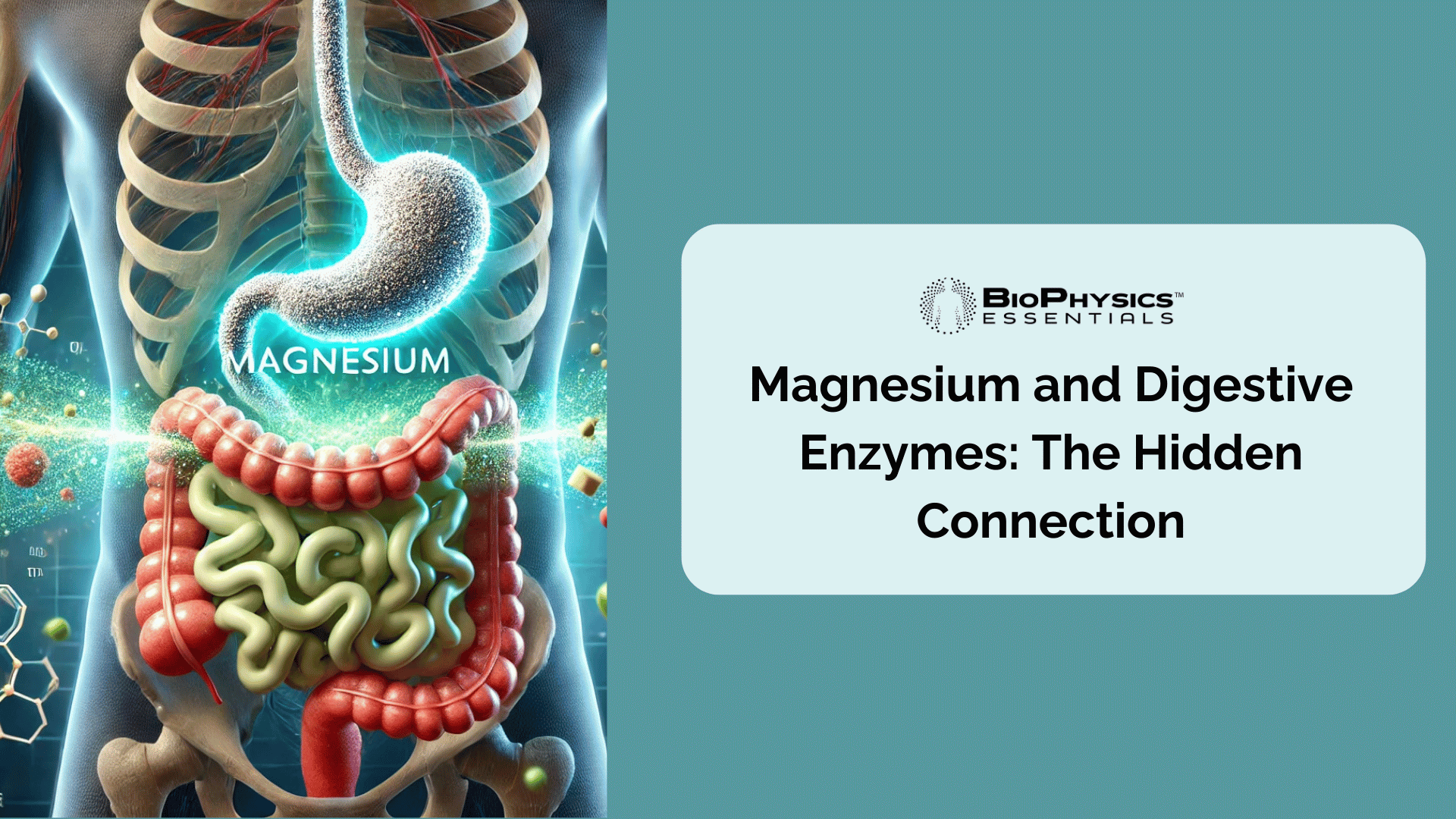
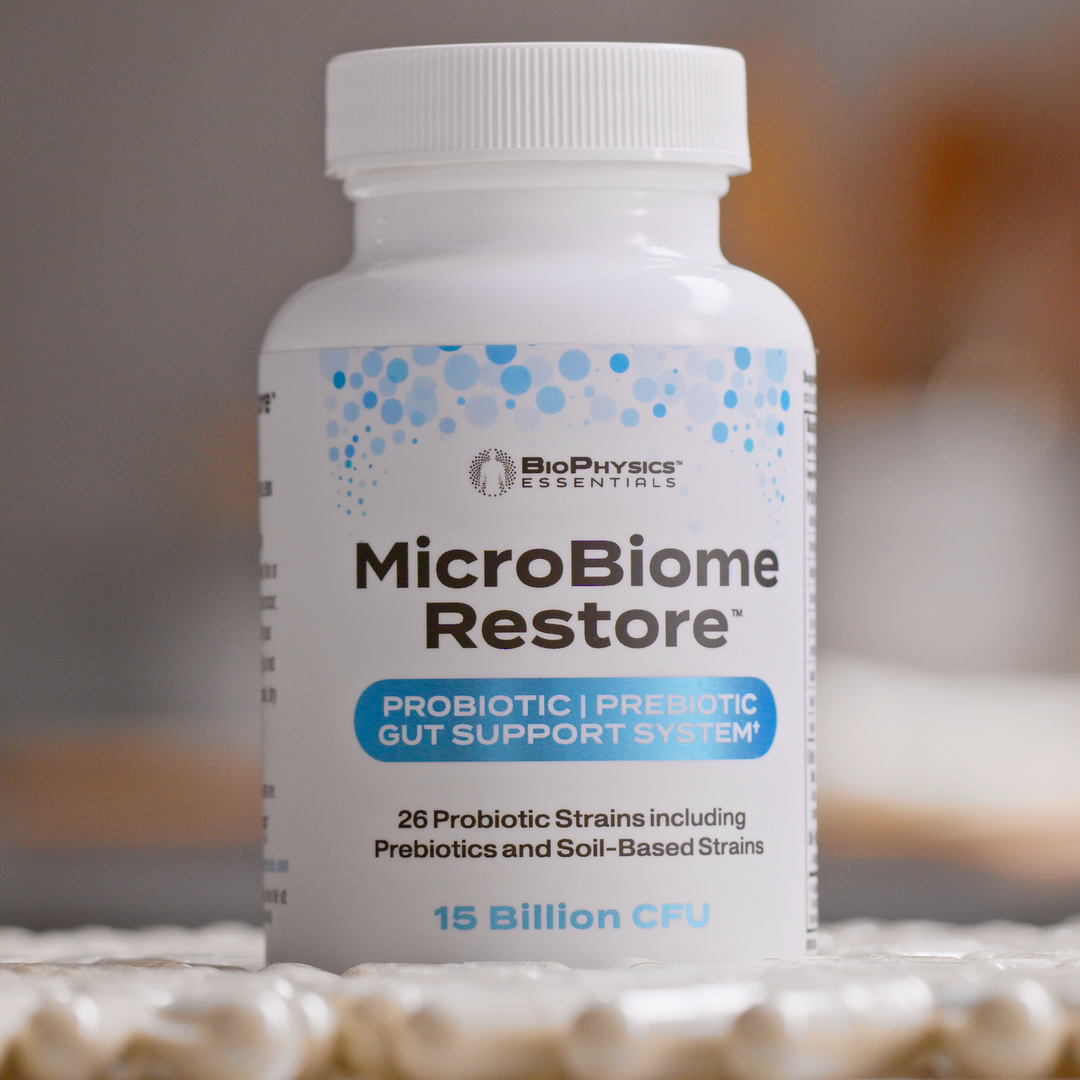
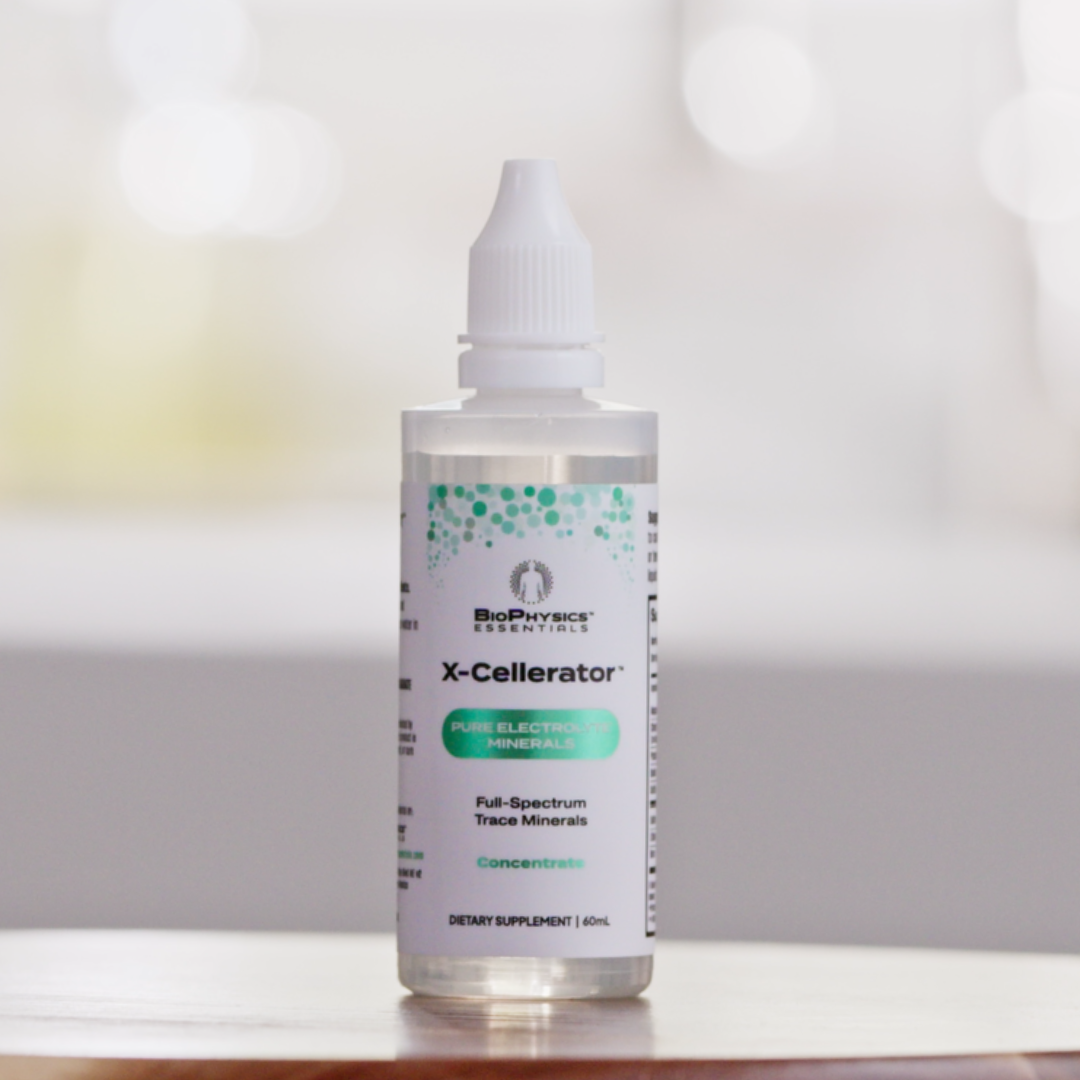
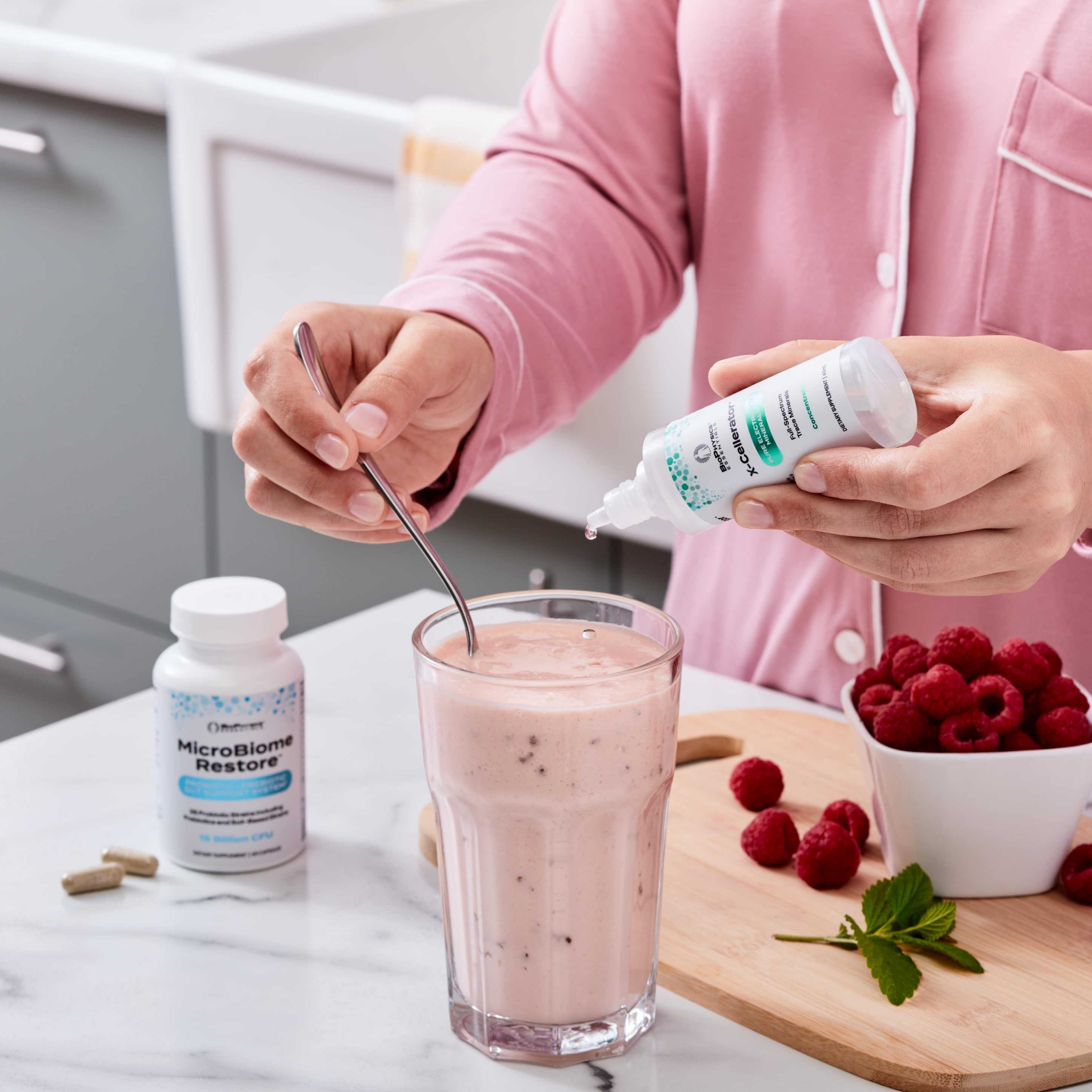
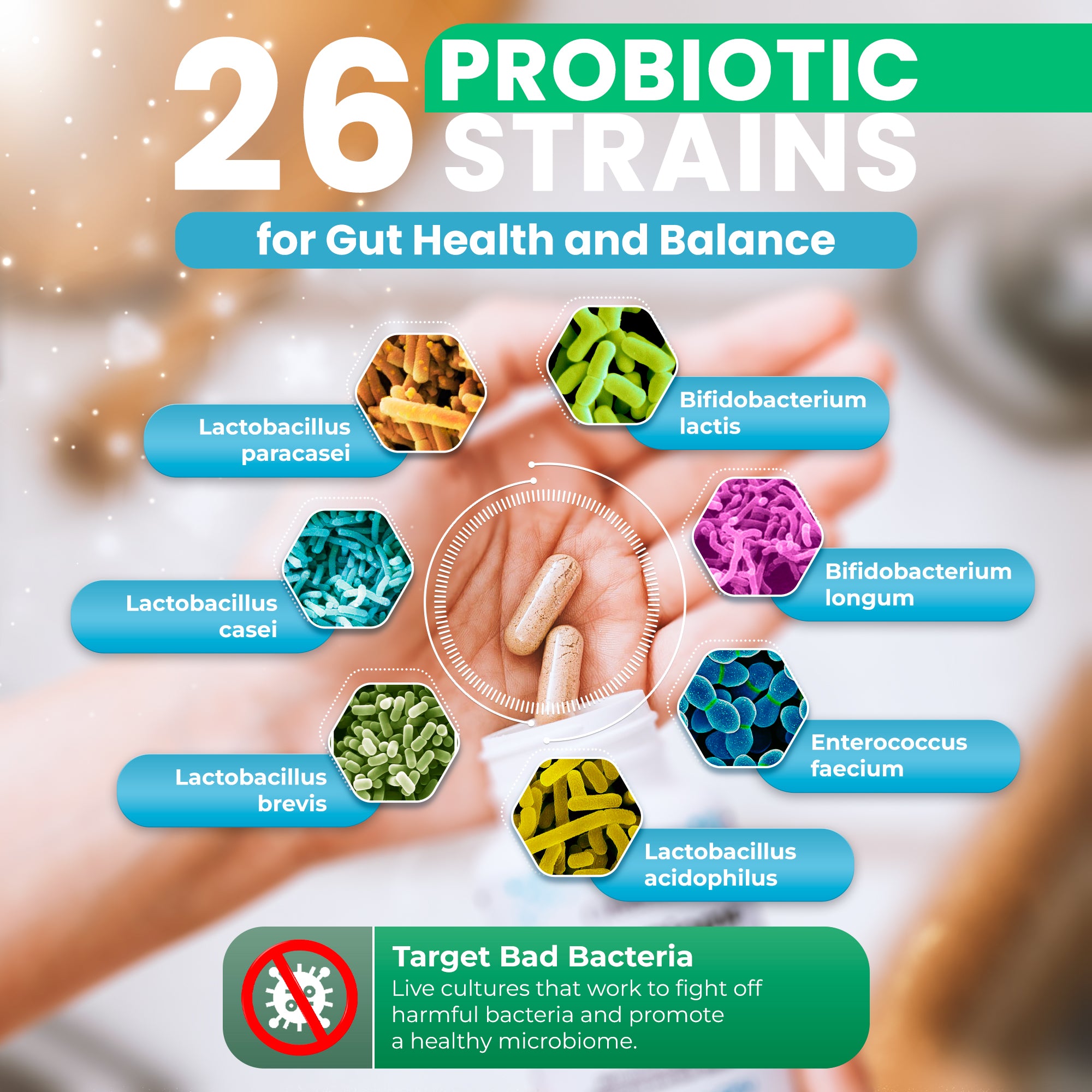




Share and get 15% off!
Simply share this product on one of the following social networks and you will unlock 15% off!